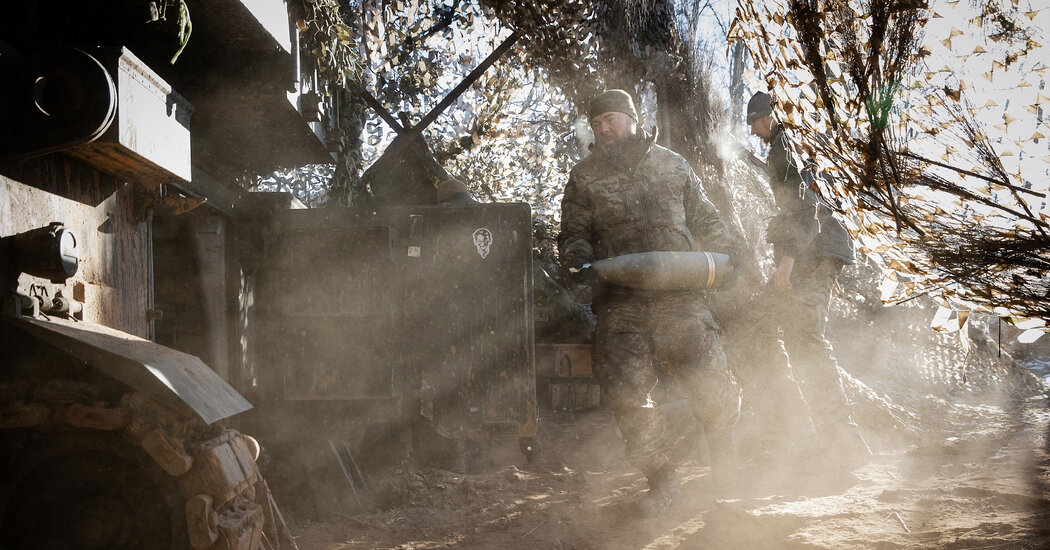Calls are growing among Western nations to allow attacks on Russian territory using weapons they have sent to the Ukrainian military, a measure that Ukraine says will allow it to better prevent Russian attacks.
NATO's Parliamentary Assembly, made up of lawmakers from countries belonging to the military alliance, adopted a statement on Monday calling on NATO members to lift the ban on firing Western weapons at Russia. This came after similar calls from NATO's top official, Jens Stoltenberg, and ministers from Poland, Lithuania, Latvia and Sweden.
Calls to allow Ukraine to expand its use of Western weapons are mostly directed at the United States, the largest arms supplier to the Ukrainian government. Washington has repeatedly asked Ukraine not to launch American-made weapons on Russian territory for fear of an escalation of the war, although there has now been a debate within the Biden administration about easing the ban.
Ukraine has complained in recent months that the ban allows Russian forces to launch attacks from inside Russian territory without risk and hampers its ability to repel them. That disadvantage became apparent this month, when Russia launched a new offensive in northeastern Ukraine after massing troops and equipment just across the border.
“We had information from our intelligence services that Russia was accumulating troops on the other side of the border, but we could not hit them to prevent this offensive,” Yehor Cherniev, deputy chairman of the Ukrainian parliament's national security committee, said by telephone. interview. “We had to wait when they crossed the border.” He added: “It cost us many lives.”
Now Ukrainian officials fear that a similar scenario could happen again. Russia, they say, has massed about 10,000 troops further north, across the border in Ukraine's Sumy region, in preparation for a possible ground offensive.
“Why can't we use weapons to destroy them where they are massing?” President Volodymyr Zelensky asked this in an interview with the New York Times last week. “This would also help because they wouldn't be merged into one operation. They would know that if they piled up in a particular spot, we would strike.”
For now, the Ukrainian military has limited itself to using Western weapons to strike targets in Russian-occupied territory inside Ukraine. Russian officials said Tuesday that the Russian-held city of Luhansk in eastern Ukraine was attacked twice overnight, with explosions shaking the city and fires.
Artem Lysohor, head of the Ukrainian military administration for the Lugansk region, said Ukraine was behind the attack. He made the statement in a social media post that included a video showing a large orange blaze raging on the horizon at night, saying the attack had targeted an aircraft repair facility.
His claim could not be independently verified and it was unclear what type of weapon was involved. But Luhansk is more than 50 miles behind Russian lines, a distance that Ukraine could hit with its arsenal of Western medium- and long-range missiles. Military experts and think tanks said Ukraine struck a Russian military training camp near Luhansk this month, likely with long-range ATACMS missiles supplied by the United States.
Ukrainian officials say such attacks inside Russia would allow them to reduce Moscow's ability to mount military operations. Kiev has used its fleet of home-made long-range drones to strike airports and energy infrastructure in Russia, but it does not produce the kind of powerful missiles or long-range artillery that could hit major military complexes.
Latvian President Edgars Rinkevics told CNN on Monday that Russia's recent gains in the northeast are “the consequence of our inability to supply weapons to Ukraine” and restrictions on the use of “those weapons to strike targets soldiers in Russia”.
Latvia is one of several European countries that have recently called for allowing Ukraine to use Western weapons against Russian territory. Going a step further, Britain and Sweden, which joined NATO just two months ago, have suggested that Ukraine could use its weapons to strike inside Russia. Britain sent Kiev powerful long-range Storm Shadow missiles, and Sweden supplied it with several self-propelled artillery systems.
The Kremlin has warned that the use of Western weapons on Russian soil would aggravate the war and provoke retaliation. On Tuesday, Dmitry Peskov, a Kremlin spokesman, told Izvestia, a Russian newspaper, that calls to allow Ukraine to fire weapons at Russia were “absolutely irresponsible and provocative.”
Some parliamentarians from the United States and France have also written to their respective governments in recent days asking them to lift the ban on the use of Western weapons.
Both countries are now considering sending military personnel to Ukraine to help train Ukrainian troops, raising questions about how they would respond if Western trainers came under Russian attack.
On Monday, General Oleksandr Syrsky, Ukraine's commander-in-chief, welcomed in a social media post “France's initiative to send instructors to Ukraine to train Ukrainian military personnel,” saying he had already signed the documents which would have facilitated their arrival. The Ukrainian Defense Ministry later clarified that no decision had been made and that the Ukrainian and French governments were “still in discussions” on the issue.
Faced with Russia's advance on the Ukrainian battlefield, several countries have increased their military support in recent months. Zelensky traveled to Spain on Monday and Belgium on Tuesday to sign bilateral security agreements.
The agreements are part of a series of such commitments to Ukraine made by more than 30 countries last year. They are intended to provide Kiev with sufficient security assistance to deter further Russian aggression, including the delivery of key weapons, troop training and intelligence sharing.
As part of the agreements, both Spain and Belgium said they would provide one billion euros, about $1.1 billion, in military aid to Ukraine this year. Belgium has also committed to supplying Kiev with 30 F-16 fighter jets over the next four years.





